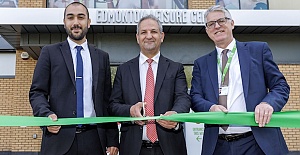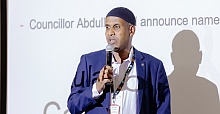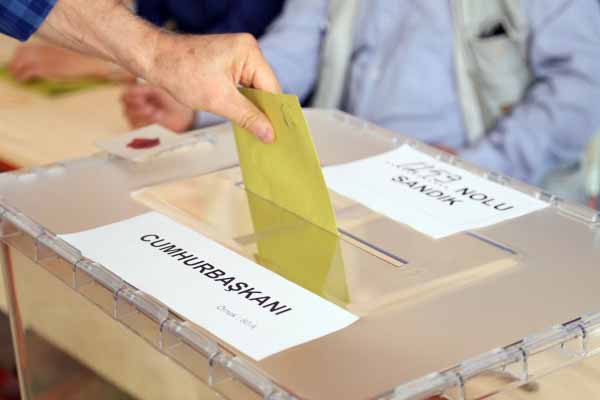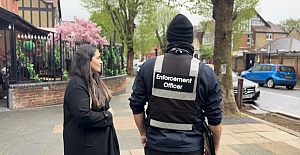More than 53 million Turks are eligible to vote in the election, which is seen largely as a referendum on the leadership of the most prominent candidate, the current prime minister, Recep Tayyip Erdogan. Throughout Turkey, 161,033 ballot boxes are at the ready. Until now, Turkish presidents have been elected by the country's parliament. But in a constitutional change approved in a 2010 referendum, the powers of the office were enhanced and the election of the president by popular vote was instituted. The campaign, which began a month ago, has reached beyond the borders of Turkey. But only 10 percent of Turks living abroad cast ballots, Turkish Deputy Prime Minister Emrullah Isler said early this week. The 232,000 overseas votes were brought back to Turkey a week ago, on Aug. 3. Isler blamed the inflexibility of the absentee voting system for the small turnout among the 2.8 million Turkish citizens abroad who were eligible to vote. The campaign has centered largely on the record of Erdogan -- Turkey's leading political figure for more than a decade. In his 11 years as prime minister, the country has grown economically, at times faster than some countries in the European Union. But charges of corruption and authoritarianism have cast a shadow on his achievements.
Still, Erdogan, 60, who heads the ruling Justice and Development Party, known as the AK Party, is seen as the strongest candidate.
The AK Party’s 12-year rule was marked by an enhancement of political and cultural freedoms, as the ban on wearing veils in Turkish universities and public institutions was lifted and the Kurdish-speaking population gained more freedom in using its mother tongue.
"If I'm elected, I will not be an impartial president," Erdogan said during the campaign. "There are two sides: the state and the nation. I will be on the side of the nation."
The election is being seen, as well, as a referendum on whether Turks want the country to move away from its parliamentary system toward a form of government with a more powerful president -- something Erdogan has pledged to embody.
“The election of the president by popular vote will be a manifestation of national will in Turkey,” he said.
Turkey's main opposition Republican People's Party and the Nationalist Movement Party named the former head of the Organization of the Islamic Cooperation, Ekmeleddin Ihsanoglu, 70, as their joint presidential candidate.
Ihsanoglu took office in 2005 as the first democratically elected secretary-general of the 57-member international organization, which aims to protect the interests of the Muslim world. Under his leadership, the organization became more involved in humanitarian, social and economic issues.
A professor who has written several books on Ottoman and Islamic history, Ihsanoglu was born in Egypt to Turkish parents, graduated from Egypt’s renowned Islamic Al-Azhar University and lived in Saudi Arabia for many years. He earned his Ph.D. at Ankara University in 1974.
When he was nominated as the joint candidate, political opponents pounced. Several lawmakers from the ruling party criticized the reconciliation between the two parties, saying that Ihsanoglu's candidacy demonstrated the collapse of opposition politics in Turkey because the left-leaning main opposition party had failed to put up a leftist candidate.
But the opposition parties defended their decision, saying Ihsanoglu could embrace the entire nation.
Erdogan has regularly described Ihsanoglu as "mon cher," which in Turkish culture denotes someone who is elitist or removed from society.
But Ihsanoglu has claimed that people are looking for new leadership.
“I stand for democracy and secularism, and against the accumulation of totalitarian power," he said, in a none-to-subtle dig at Erdogan's alleged authoritarian tendencies.
Turkey's opposition pro-Kurdish Peoples' Democracy Party has nominated its co-chairman, Selahattin Demirtas, 41, as its candidate. Demirtas is seen as having scant chance of winning the election. But he does draw attention with his considerable speaking skills.
A former lawyer, Demirtas was elected to the Turkish parliament in 2007. But he was sentenced to 10 months in prison in 2010 for alleged links to the outlawed Kurdistan Workers' Party, or PKK.
He was co-chairman of the pro-Kurdish Peace and Democracy Party before joining Peoples' Democracy Party. The two parties caucused together in April.
The Peoples' Democracy Party, although politically aligned with the Peace and Democracy Party, was established with the aim of winning broad support across Turkey and becoming an influence in Turkish politics -- contrary to the Peace and Democracy party, which relies on a strong Kurdish voter base mostly from eastern Turkey.
"We need a new constitution that will defend freedom and will be written by the people," Demirtas said when he presented his election manifesto.
He also stressed the importance of democratization in Turkey in finding a solution to the Kurdish issue. He has called for an expanded role for women in Turkish politics and for all oppressed groups to build a new life together.


 Prime Minister Keir Starmer's 2025 Easter message
Prime Minister Keir Starmer's 2025 Easter message After Nesil Caliskan a by-election will be held in Jubilee ward in Enfield
After Nesil Caliskan a by-election will be held in Jubilee ward in Enfield Publishing the analysis, Labour’s Cllr Ergin Erbil said Everybody in Enfield deserves basic rights
Publishing the analysis, Labour’s Cllr Ergin Erbil said Everybody in Enfield deserves basic rights Gaza-Israel conflict Statement from Cllr Ergin Erbil, Leader of Enfield Council
Gaza-Israel conflict Statement from Cllr Ergin Erbil, Leader of Enfield Council UK AMBASSADOR TO TURKEY VISITS FETHIYE
UK AMBASSADOR TO TURKEY VISITS FETHIYE Journalists from Europe held the Turkish Media Workshop in Skopje
Journalists from Europe held the Turkish Media Workshop in Skopje The European Union called on Turkey to uphold democratic values
The European Union called on Turkey to uphold democratic values Turkish citizens in London said Rights, Law, Justice
Turkish citizens in London said Rights, Law, Justice The 'Prince of Paris' has impressed in his first EuroLeague season
The 'Prince of Paris' has impressed in his first EuroLeague season Saran Media And Euroleague Basketball Extend Media Rights Partnership for Four More Years
Saran Media And Euroleague Basketball Extend Media Rights Partnership for Four More Years Will Rangers be Jose Mourinho’s next victim?
Will Rangers be Jose Mourinho’s next victim? Jose Mourinho's Fenerbahce face Rangers on Thursday
Jose Mourinho's Fenerbahce face Rangers on Thursday Residents welcomed back to Edmonton Leisure Centre
Residents welcomed back to Edmonton Leisure Centre Barclays has become the biggest UK lender so far to cut mortgage rates
Barclays has become the biggest UK lender so far to cut mortgage rates THE SPRING STATEMENT EXPLAINED, UK ECONOMIC OUTLOOK AND GROWTH FORECASTS
THE SPRING STATEMENT EXPLAINED, UK ECONOMIC OUTLOOK AND GROWTH FORECASTS Launch of Made in Enfield gift shop to celebrate local artists and designers
Launch of Made in Enfield gift shop to celebrate local artists and designers
















